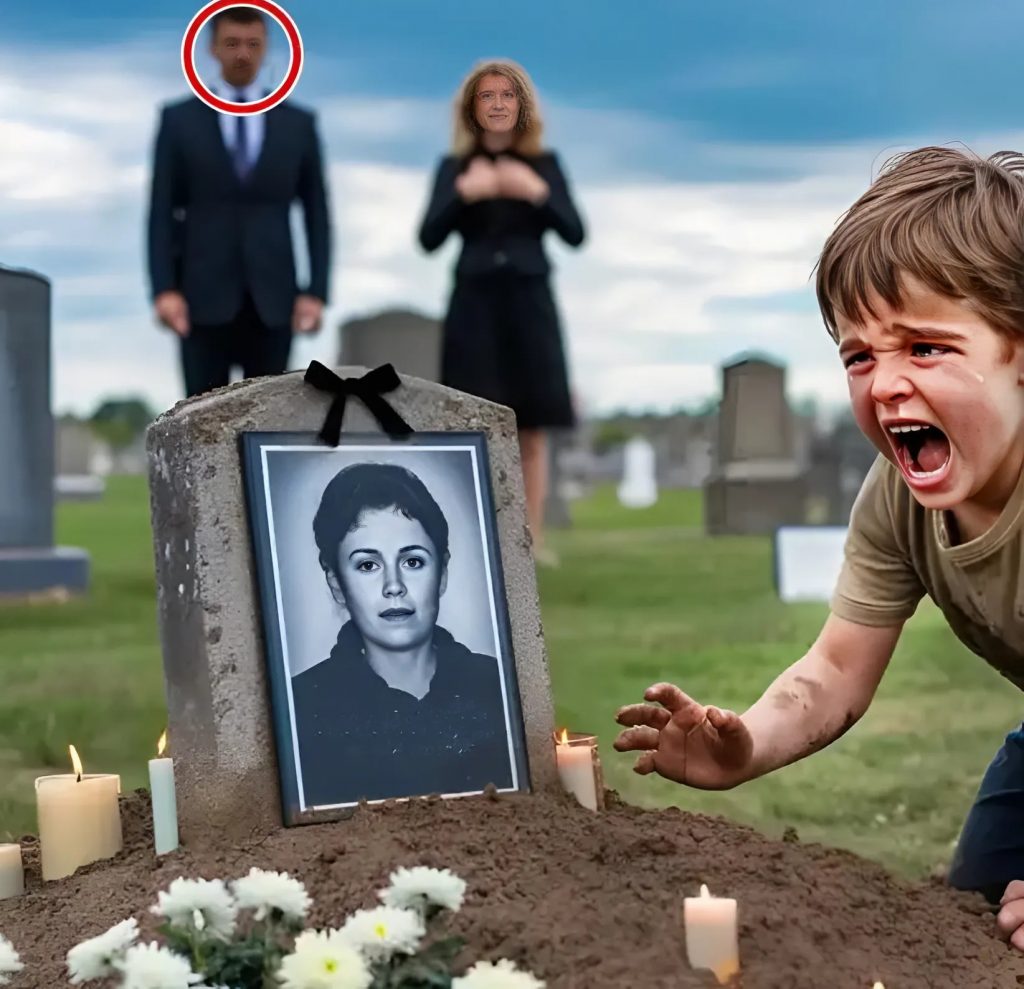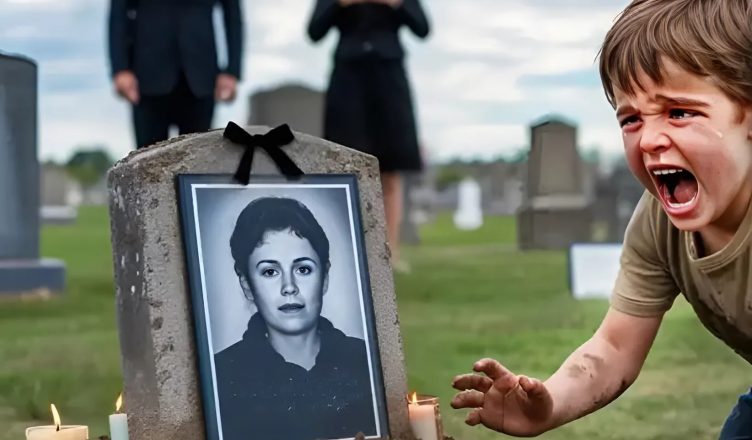The cemetery stood still under a waning sky, as if the world itself had paused to hold its breath. Long-forgotten tombstones leaned like tired sentinels in the fading light. Wind swirled fallen leaves around the ankles of the dead, rustling with secrets no one dared speak aloud. In this muted expanse of stone and sorrow, a six-year-old boy named Kevin Davidenko sat beside a grave that bore his mother’s name.
To the passing eye, it was a scene touched by tragedy: a child, too young to understand death, holding onto delusions to ease his grief. But Kevin didn’t cry. He didn’t ask why the world had been so cruel. He simply whispered a truth only he seemed to believe.
“She’s not gone,” he said again, not to anyone, but to the cold earth itself. “She’s still down there. I can feel her.”
At first, no one listened. His aunt, who now had custody of him, would mutter to herself about trauma and childhood delusions. The therapists wrote their notes. The neighbors shook their heads with pity. But Kevin’s conviction never wavered. Every week, he returned to the same spot, knelt on the same patch of grass, and whispered the same words to the wind.
It might have remained a forgotten story in a quiet town—until Alexander Roman, a reclusive millionaire, overheard it by accident.
Roman was not a man known for sentimentality. His empire was built on tech, finance, and the kind of risk others feared. But something about the boy’s voice—fragile, certain, unshakably sincere—gripped him. The phrase «She’s still alive» echoed in his mind for days, a splinter of thought he couldn’t remove.
He made inquiries. At first, simply to satisfy a passing curiosity. Who was the woman in the grave? How had she died? He discovered her name: Elena Davidenko. A nurse, single mother, beloved in her community. The official cause of death: a car accident. The funeral had been quick, closed-casket, and managed by a small-town mortuary with a questionable reputation.
Something didn’t sit right.
Roman’s wealth gave him access to everything—from private investigators to forensic analysts. Slowly, pieces began to crack apart. There was no hospital record of her body being processed. The coroner’s report was vague, almost rushed. The mortuary had gone out of business just a month after the burial. And most damning of all: a DNA match on a national missing persons database showed a woman alive and hospitalized in another state, suffering from amnesia, her identity listed as unknown.

She had been admitted just three days after Elena Davidenko’s supposed funeral.
Roman did what no one else had dared: he ordered an exhumation. The court tried to block it, but his lawyers pushed harder. The boy, he argued, had a right to the truth. When the casket was finally opened, the truth spilled out like a ghost from the soil.
It was empty.
The silence that followed that discovery silenced the town. The whispers changed from pity to awe. Kevin hadn’t been grieving a fantasy—he had been holding onto a fact no one else could see. His mother hadn’t died. She had been taken, misplaced, mislabeled by a flawed system and a series of indifferent officials.
What followed was a flurry of media attention. Headlines raced to outdo each other: “The Boy Who Knew,” “The Empty Grave,” “Whispers From Below.” Kevin became a symbol of something rare and unsettling: unshakable intuition grounded in truth.
Eventually, Roman reunited mother and son. Elena, still recovering from her trauma, didn’t remember much of the accident or how she ended up hundreds of miles away. But the moment she saw Kevin, everything inside her lit up again. Something buried deep stirred to life.
Kevin didn’t cry. He simply smiled and said, “I told you she was still alive.”
The story became a modern legend—shared on forums, podcasts, and news specials. People argued over what it proved. Some called it intuition. Others called it love beyond logic. A few whispered of miracles. But the facts were clear: A boy had known something no adult had dared believe. And because of him, a life presumed lost was saved.
In the end, the town changed. Not in its appearance—the cemetery still stood, the wind still whispered through the trees—but in how people listened. They listened more closely, more patiently. Especially to children.
And in that far corner of the graveyard, where old stones still leaned and forgotten leaves still fell, one grave was marked not by loss, but by mystery. A stone that bore no body, but held the echo of a child’s voice that once refused to be silenced.
“She’s not gone. I can feel her.”
It wasn’t fantasy.
It was truth. Just buried too deep for most to see.
